1) The Global Bioeconomy Summit 2020
The Global Bioeconomy Summit (GBS) is one of the most important international events on the topic of bioeconomy. Following 2015 and 2018, the third forum with bioeconomy, innovation and sustainability experts from around the world took place digitally in 2020.
The two-day conference program on November 19 and 20, 2020, was preceded by three days of twelve workshops. More than 100 top-class speakers from all continents designed the program, for which more than 3,000 interested parties had registered.
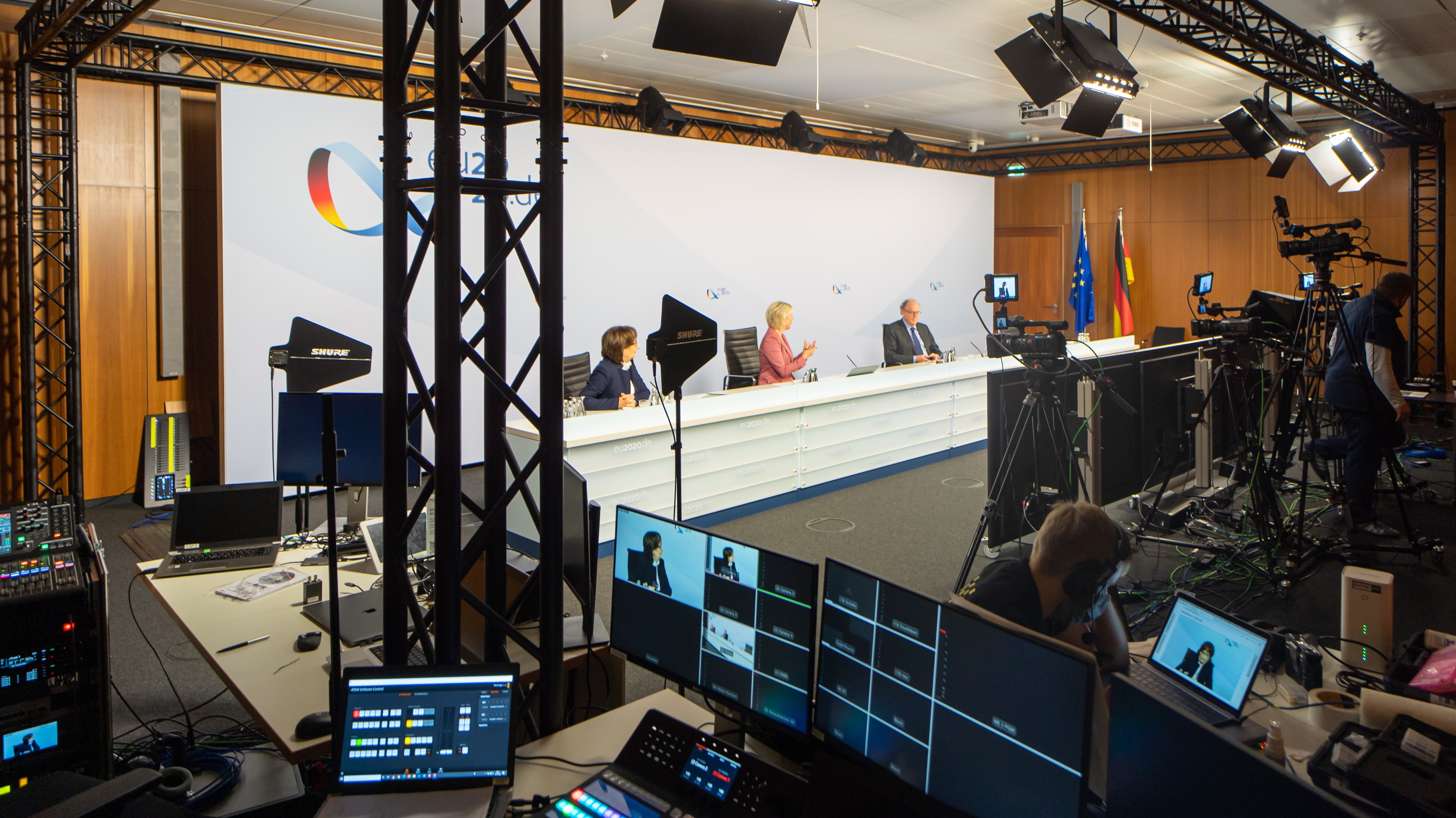
The summit was prepared and organized by the International Advisory Council on Global Bioeconomy (IACGB), which is made up of around 40 international bioeconomy experts. The event was sponsored by the German Federal Ministry of Education and Research (BMBF). The information portal bioökonomie.de reported several times in the run-up to, at the kick-off and during the GBS 2020. In this report, some selected sessions from the plenary program are presented in more detail.
Page 2 of 7
2) Political greetings from two female federal ministers
Federal Research Minister Anja Karliczek, who opened the Global Bioeconomy Summit for the second time in her tenure, acknowledged the high importance of the bioeconomy: "One of our most important tools on the path to greater sustainability is the bioeconomy." Referring to the Corona pandemic, she stressed, "We can emerge from this crisis stronger than before if we take advantage of research, innovation and digital technology, as we are already doing today with this digital conference format." The minister described climate change, digital transformation, malnutrition, biodiversity loss and dwindling resources as "common global challenges." "With the use of the bioeconomy, we can sustainably produce more food for a growing world population," Karliczek said. "We can tap sustainable raw materials and resources and create entirely new products."
More and more countries are bringing the bioeconomy prominently to the political level, the summit host reported. A growing number of companies are beginning to focus on renewable resources, she said, and more consumers are interested in sustainable products. "Each country is choosing different approaches, which makes sense because we need to see bioeconomy as a global issue, but it needs to be realized locally. Each region has its own resources and potential."
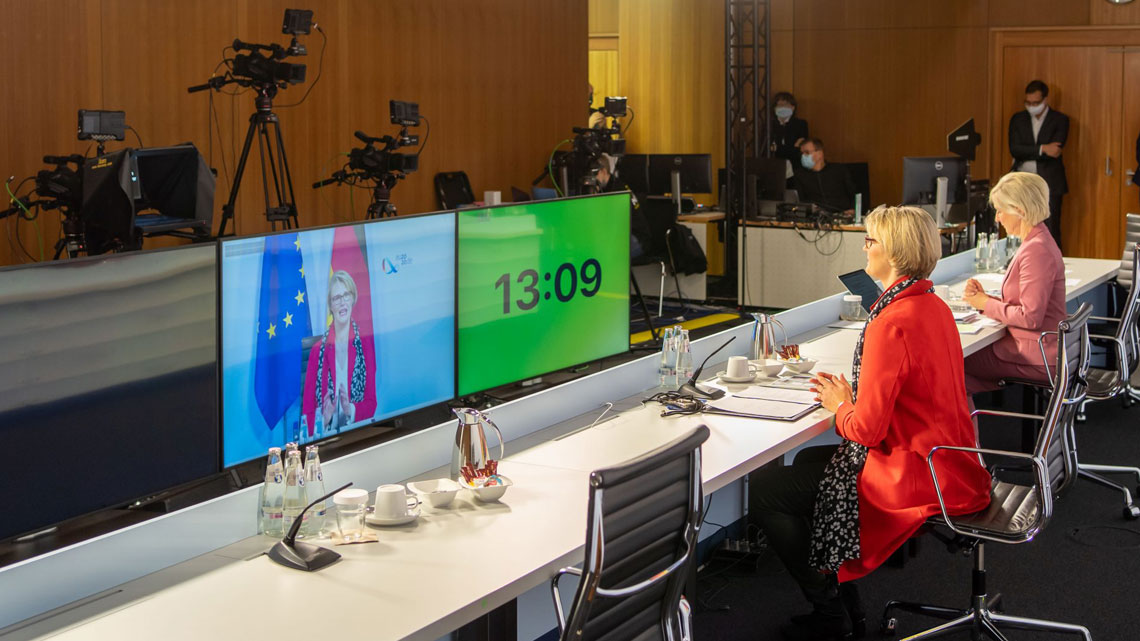
With regard to her own work, Karliczek said: "The German government adopted its bioeconomy strategy at the beginning of this year. We are providing targeted funding for innovations that target our climate as well as tipping points in our ecosystems. Our goal is to increase our biological knowledge and use it to develop new processes and systems." Another goal is to support a sustainable bioeconomy on a global scale. To this end, international, cross-border collaborations are to be strengthened.
"The transition to a true bioeconomy can only succeed properly if people are ready for it," the minister continued. "That's why we need research on the social consequences of this change." She also cleared up a prejudice that is still "too often" voiced: "The economic and ecological dimensions are not mutually exclusive. They go together to preserve our planet while maintaining our standard of living. The bioeconomy makes that possible." The time has come, she said, to commit to long-term goals while taking immediate action.
At the end of her speech, Karliczek accepted the communiqué of the IACGB, in which the experts set out their recommendations on the way to a sustainable transformation of the economic system. In the communiqué, the panel does not merely appeal to policymakers, but concretely shows where new properties of biobased products and processes can make a valuable contribution to a sustainable future. The focus is always on human health and the protection of the climate and environment.
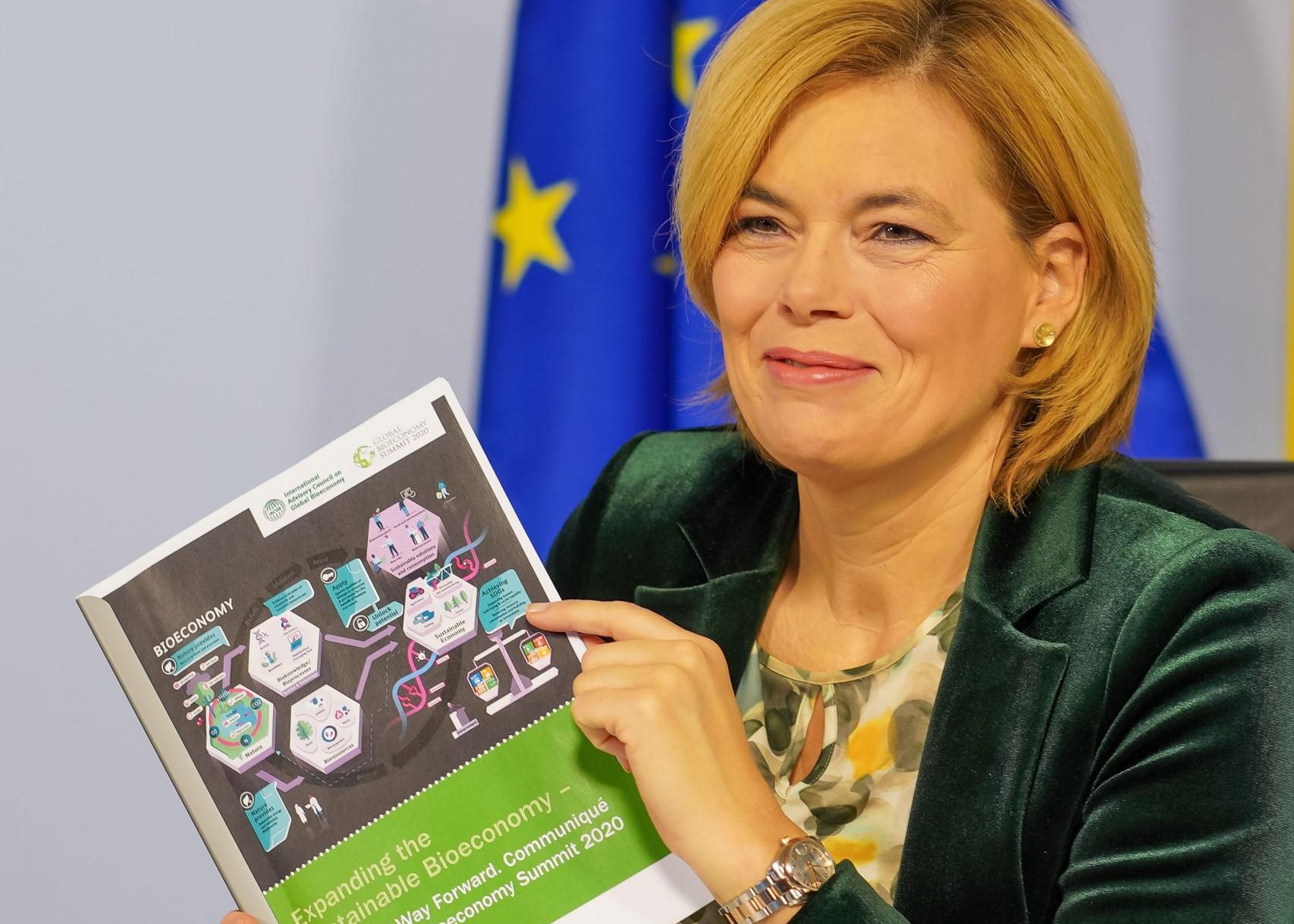
The second day of the summit was opened by German Agriculture Minister Julia Klöckner. The bioeconomy, she said, creates prospects for a world in which sustainably produced biobased products have increasingly established themselves on the market, helping to protect the climate and reduce petroleum use. "Bioeconomy holds leading potential," so Klöckner, "and scientific and technological advances are enabling entirely new biobased innovations." Among them, she cited the CRISPR-Cas gene scissors. "This groundbreaking method of genome editing is revolutionizing breeding on the way to plants that require less fertilizer and pesticides." The transition to a biobased economy involves complex interactions that do not end at national borders, she said, which is why international cooperation, such as the Food and Agriculture Organization (FAO), is so important. Its Director-General, Qu Dongyu, spoke to the GBS participants after the Federal Minister of Agriculture.
Page 3 of 7
3) Crisis management and prevention through the bioeconomy
Magdalena Skipper, editor-in-chief of the journal Nature, discussed the bioeconomy as a strategy for responding to global crises such as climate change and biodiversity loss with six political and economic decision-makers. The focus was on the approach of using technology and science to counter crises, involving consumers and producers alike without losing sight of the well-being of planet Earth.
The Executive Director of the European Bio-based Industries Consortium (BIC), Dirk Carrez, pointed out that companies already need to be able to explain how their activities are in line with the United Nations Sustainable Development Goals (SDGs). In the future, he said, it will also be necessary to show how much companies contribute to these goals. The BIC has developed guidelines on how to measure that, he said. "Now we have these tools available. That's important because the SDGs are often quite abstract." The OECD, United Nations and others should now develop these guidelines at the global level.

Leena Srivastava, deputy science director of the Austria-based International Institute for Applied Systems Analysis (IIASA), called for science to support policymakers in optimizing the sustainable use of ecosystem services. In addition, the research community should be more solution-oriented. "We have one last chance to go green," Srivastava cautioned. The COVID-19 crisis is that opportunity, she said, referring to the aid packages governments are currently putting together. "We've seen in the past the difficulty of mobilizing money in order to go greener." The volume of aid packages is a tremendous opportunity. A key finding here is to redesign urban space so that it can have a meaningful impact on climate change mitigation and sustainable development. She advised thinking of "green renewal" in a broad context.
Brendan Edgerton, who is responsible for the circular economy at the World Business Council for Sustainable Development, also supported this: "Up until now, solutions have always been developed in isolation, focused on one problem but without seeing the bigger picture. New problems have arisen as a result. "A circular bioeconomy with a small footprint has benefits not only for sustainability but also for society." He advocated adjusting the measure by which innovations are judged successful.
"We need to put nature at the heart of our economy," urged Helena Vieira, who heads marine policy at the Portuguese Ministry of Agriculture. "For every euro we put into the bioeconomy, we generate ten euros in 2025," she said, noting that the bioeconomy sustains jobs and growth. New markets and new efficient biomaterials need to be identified on the one hand, and the appropriate regulatory framework needs to be created to commercialize biobased solutions on the other. Referring to the finite land area and limited usable resources of the forest, she directed attention to the use of the sea in Portugal: "We plant algae to increase biodiversity, sequester CO2, and in the process produce biomass for bio-based products."
Torfi Jóhannesson, advisor at the Nordic Council of Ministers, expressed his conviction that the pandemic "will not be the end of special circumstances." He pleaded for collaborations, saying, "So many things are already available, have been tested, and are ready to be copied." Best-practice catalogs could serve as inspiration. To that end, he urged, "We need to define the SDGs at a macro-regional level." They are global agendas that need to be adapted locally. For example, burning biomass for energy may make sense in one region and nonsense elsewhere. Livestock farming can increase biodiversity and sequester carbon but is inefficient from a resource perspective - and therefore not a viable solution in most places.
Appropriate policy action was missed by Rachel Wynberg, professor of environmental and earth sciences at the University of Cape Town: "Bioeconomy is a tool to address climate change and preserve biodiversity. We need to embed these goals much higher up in policy and raise their political profile." Strategic approaches to policymaking were lacking, she said. "We can't push economic growth at the expense of everything else. We need new economic concepts." To do so, policymakers also need to listen to other groups than they have in the past.
On the question of whether to focus on greater efficiency or to completely decouple the economy from emissions, viewers were undecided in a poll using the Slido voting tool. However, Edgerton clearly found, "We are beyond the point where efficiency is still efficient. We need to pursue aggressive changes in both the public and private sectors to still meet climate goals." Jóhannesson added that this is as inevitable as it is impossible: "We don't have any more natural resources, we have to decouple. The solutions are there and need to be scaled up now."
Page 4 of 7
4) The increasing number of countries worldwide with bioeconomy strategies
During the summit, the IACGB also presented its fourth Global Bioeconomy Policy Report. To date, 19 countries worldwide have adopted a dedicated bioeconomy strategy, and a similar number have one in development. In addition, there are numerous regional strategies, both macro-regionally and in small regions.
The strategies are becoming more complex, described IACGB member Christian Patermann: For example, SDGs are being included in the strategies, as well as the Paris Agreement on climate protection. In terms of content, there is an increasing proximity to other important developments such as digitalization and artificial intelligence. However, relevant fields such as 3D printing, electrification, e-mobility, raw material security or CO2 as a resource are often still insufficiently taken into account.
IACGB member Mary Maxon highlighted the importance of action plans, which increasingly complement bioeconomy strategies to match intentions with action. "The importance of the bioeconomy in the transition to sustainability is growing." However, he said, the business community is moving faster than policymakers. Important further steps are biofactories, but above all cooperations to join forces and exchange experiences.
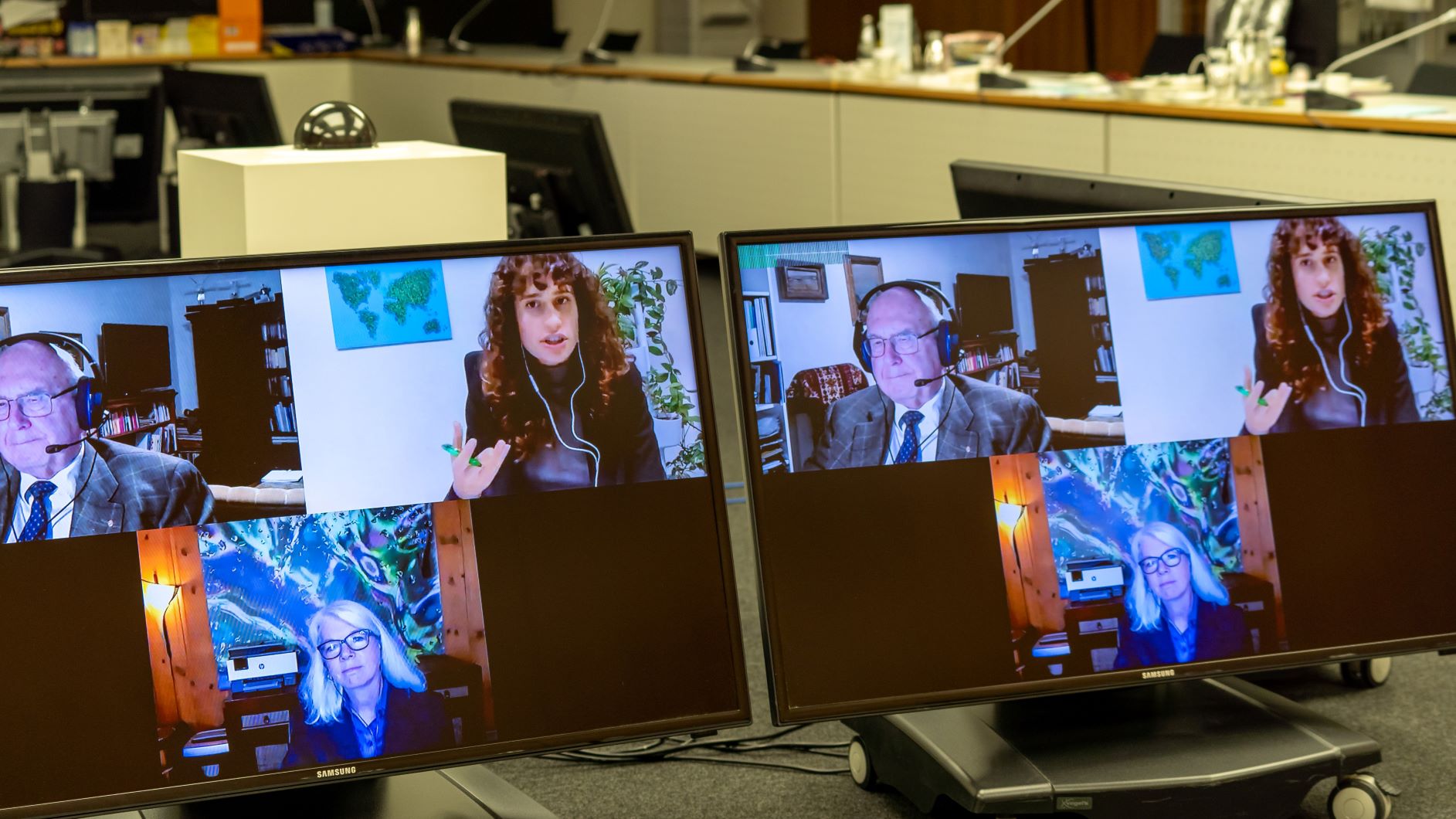
Page 5 of 7
5) The role of finance for the bioeconomy
In the bioeconomy, too, much revolves around money: How available is venture capital for the industry's start-ups? How willing are banks to finance innovative large-scale plants? Which companies are leading investment firms putting their investors' money into? And last but not least: What support does the state give to public and private research, but also to the companies involved in the transformation? In three keynote presentations, the relationship of the financial sector to the topic of sustainability and thus also to the bioeconomy was examined.
Sustainability is increasingly becoming a criterion for investments in the financial sector. Companies in the bioeconomy are also benefiting from this, particularly due to the direct link to climate change. Nevertheless, it is difficult to align financial investments in companies specifically with sustainability criteria, explained Emily Chew, who is responsible for this task at Morgan Stanley. "Only half of MSCI World companies report their CO2 emissions," she said - and other factors such as water use and pollution or waste handling are rarely quantified. For large corporations in particular, she said, it is actually difficult to collect this data. But there were growing mergers in the financial sector that put pressure on large companies. "There are promising green shoots in the financial industry right now," Chew summed up.
This is also reflected in the "Impact Funds," which aim to promote positive ecological or social aspects with their investments and already total $715 billion, as "Global Bio Fund" founder Ipshita Mandal-Johnson emphasized. In the coming year, she said, a globally active bio-accelerator is also to be founded, in which 170 organizations will participate.
This development has also been picked up by the European Investment Bank, which, according to Werner Schmidt, Director of the Environment and Sustainable Development Department, plans to invest one trillion euros in environmental sustainability over the next decade and will consistently orient itself to the Paris goals from 2021.
The subsequent debate focused on how investments in the bioeconomy can be steered. The COVID-19 pandemic may be helpful for this, described Michal Devir, co-founder of Rimonim Agro: "People are starting to look specifically for investments in fields that have social relevance - like the bioeconomy." However, she says, it has always been difficult to mobilize money for early-stage technical developments, which is why that is strongly encouraged in Israel on the part of the state. "We have the highest per capita venture capital in the world and 420 accelerators," so Devir. As a result, there are a thousand new startups a year.
Interest in sustainability issues is already evident among banks and financial investors, although much education is still needed, reported Ray Dhirani, head of sustainable finance at WWF UK. The driving force is that investing in sustainability offers a competitive advantage in the battle for talent and for customers. However, he said, science-based standards in assessment are essential for such investments if they are to produce anything other than niche products. "It's ambitious, but can achieve something that properly benefits people and the planet."
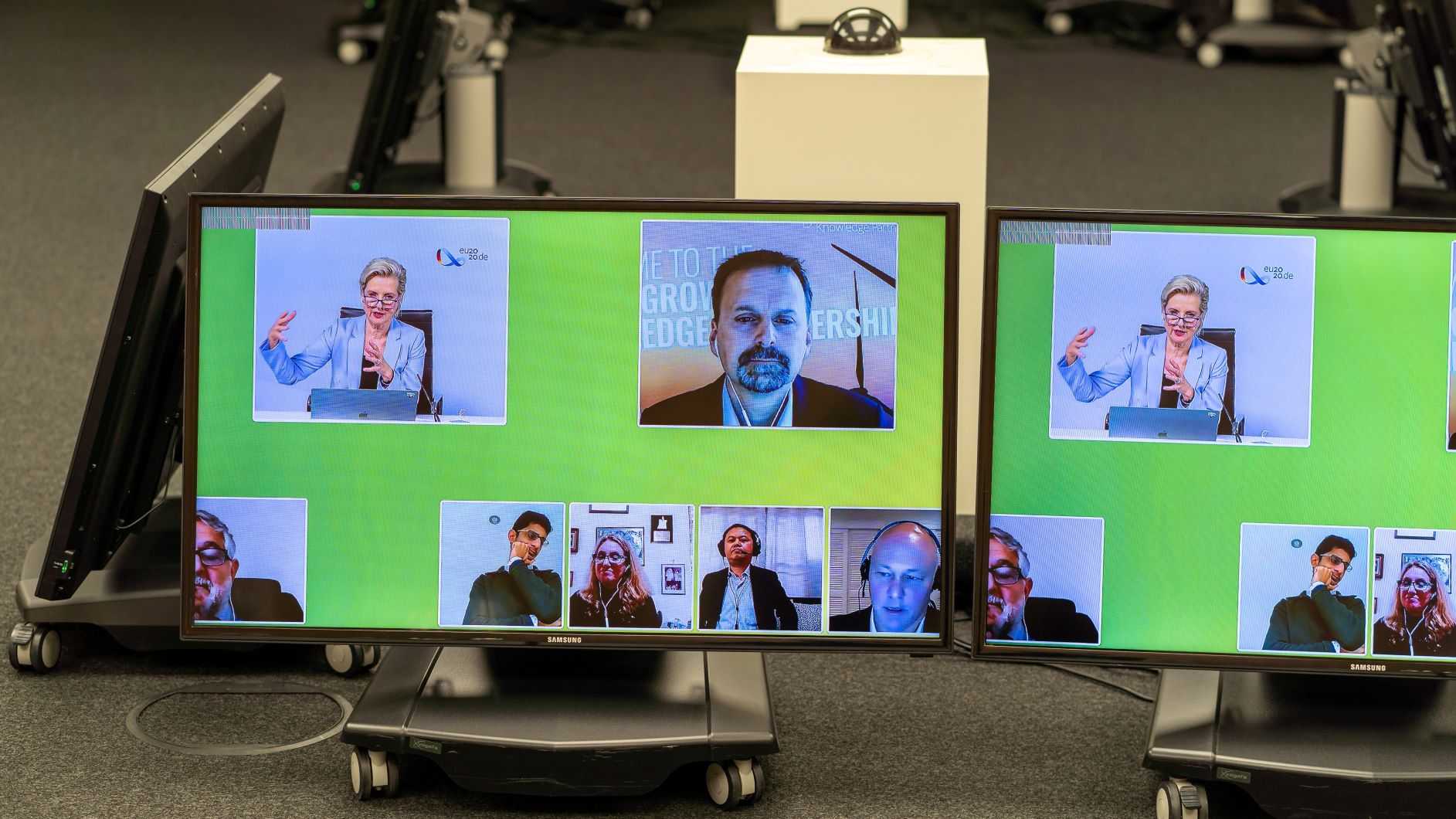
From Thailand, Kitipong Promwong, president of the National Policy Council for Higher Education, Research and Innovation, reported that for the first time, the state was providing direct financial support to the private sector because the bioeconomy is a long-term development and therefore involves major risks. Entrepreneurial hurdles of a regulatory nature, for example for the transport of waste, would be reduced. And the state supports small companies by developing infrastructures such as biorefineries. One should not forget to give primary producers such as small farmers access to innovations.
Creating structures is also the U.S. approach, said Chris Fall, director of the Office of Science at the Department of Energy. "There is reluctance in the U.S. to pick winners through government investment," he said. Because the bioeconomy doesn't happen in garage companies, he said, the government prefers to create structures that individual companies or universities wouldn't build - from supercomputers to Earth-observing satellites. "As a government, we can make it easier or harder for companies," he said, referring also to regulatory and infrastructure conditions. Most important for companies and research, however, is reliability in funding.
Pablo Nardone, advisor at Argentina's Ministry of Science, Technology and Innovation, concluded by highlighting the importance of aligning education with market needs - not only in the sciences, but also in finance.
Page 6 of 7
6) Bioeconomy in the European Union
The summit not only focused on priority regions such as Japan, East Africa, Latin America, the Caribbean, and Southeast Asia (ASEAN), but also looked at the situation in the European Union. The EU has not only adopted a bioeconomy strategy, but also recently made a name for itself with the Green Deal and major COVID-19 aid programs. John Bell, director of research and innovation at the European Commission, also mentioned the Horizon program for research funding and the demonstration of innovations and their upscaling as drivers of the transition to a bioeconomy. "We are moving from bioeconomy as a niche to a world where everyone lives in a bioeconomy." Bell emphasized that the bioeconomy is the oldest thing in our economy and culture, and now the task is to reconnect "with our biosphere, our planet and our resources." Necessary for change, he said, are incentives, markets and regulations, but also socioeconomic aspects such as education and information. "We need to understand the conditions of planetary boundaries." As the European Commission, "we have to bear the risks that the private sector is not yet willing to bear. And we have to work fast." Because, Bell continued, "We are running out of time." Still, the research director concluded optimistically, "We learned from the pandemic that we can do anything we want, with enough money, political will, and people skills."
As lead director of the Bio-based Industries Joint Undertaking (BBI-JU), Philippe Mengal presented some figures. The initiative he heads started six years ago with a budget of €3.5 billion to kick-start public-private collaborations in the bioeconomy. "Today, we have 123 projects from 37 countries in our portfolio that use by-products from agriculture, waste from municipalities and industry, or grain from lean soils." Associated with this, he said, are 3,500 direct jobs as well as more than 10,000 indirect jobs, private investment of €1.3 billion and CO2 savings of 600,000 tons per year. The current bio-based industry in the EU provides 3.6 million jobs and generates sales of 750 billion euros.
Sarah Mubareka, Scientific and Technical Officer at the European Commission's Joint Research Centre, highlighted sustainability issues. For example, she said, the EU currently uses about 1.2 billion tons of biomass, but only produces about one billion tons, and demand is growing. Negligible in absolute terms is the demand from the chemical industry, which is growing particularly strongly at 10% per year, but not the 6% annual growth in bioenergy. However, she said, it is difficult to relate this local demand to planetary boundaries. "It involves a lot of assumptions, and we only partially know the environmental aspects of our imports." Mubareka cautioned that it's not just demand that's increasing: "Climate change has implications for biomass availability. Severe infestations of insects in our forests have increased by 600%, and forest fires by 230%." The good news here, she said, is that the EU's bioeconomy strategy takes these factors into account, and in any case, the bioeconomy has a positive effect on planetary boundaries.
Marc Palahí, director of the European Forest Institute, gave three concrete examples of how the forest-based bioeconomy could play into the Green Deal. Unlike oil or coal, biomass in the form of fields and forests is owned by many. "This is an opportunity for a fairer distribution of wealth. The forest-based sector provides more than three million jobs in Europe, much more than the steel, cement and chemical industries combined." However, he said, the EU's 16 million forest owners need to be better involved than they have in the past. In addition, bio-based solutions are essential for the decarbonization of industries such as construction, chemicals, packaging and transport, and would also reduce the problem of microplastics. Last but not least, a high-performance bioeconomy requires intact biodiversity. "Thus, the bioeconomy promotes the commitment to invest in biodiversity."
Page 7 of 7
7) Outlook for the development of the bioeconomy
In the Summit Communiqué, the IACGB provides an outlook on the further development of the bioeconomy. This was finally commented by experts of the IACGB, from the partner regions of the summit and participants of the parallel Bioeconomy Youth Champions Summit. Vladimir Popov of the Russian Academy of Sciences expressed optimism: He said that the response of the scientific community to COVID-19 has been very impressive and rapid, which gives hope for the bioeconomy as it is also based on the life sciences. "Biology is moving from a descriptive science to an applied science." Of course, this will require some funding, "but far less than for nuclear physics, for example." This increasing funding must now be secured and "the decision-makers are ready for it."
Marcelo Regunaga, from the Southern Horn Producing Countries Group, pointed to the certificates issued in South America for low-carbon production methods and established precision agriculture as examples to emulate. "But this is not something that individual initiatives can do; it requires collaborations." Flora Ismail Tibazarwa, program director of the Southern African Innovation Support Program (SAIS), reminded the audience of the importance of inspiring graduate students. "Mentorship is key for startups to survive." In Southern Africa, he said, it's also about supporting regional innovation policies, building partnerships and fostering multipliers and incubators. Numerous projects are already underway, from low-cost access to water to desert agriculture.
Charlotte Sode, who heads the bioeconomy unit at the European Commission, stressed once again that for the EU, the bioeconomy is at the heart of the Green Deal and recovery from the COVID-19 pandemic. She pointed to the 250 million euros that the European Investment Bank (EIB) and Commission have allocated to the circular economy, and to the BBI-JU initiative that is now in full swing: "It demonstrates the new technologies, brings products closer to markets and provides jobs across Europe, in agriculture, forestry and industry." For every euro invested by the public sector, he said, three euros are expected to be invested privately. "The circular bioeconomy is the best example of green growth."
"Demand and financing" are crucial for the bioeconomy to leave its niche, judged Christine Lang as one of the IACGB's chairs. "We need to bring processes and products to consumers." Governments need to act now and prioritize bio-based products in their programs, reduce barriers to entry, and create incentives to put money into the bioeconomy. After all, she said, money is available, for example in pension funds. Joachim von Braun added that the Green Deals in the EU, China or the USA are a step in the right direction, but a global Green Deal is needed. He believes the bioeconomy is missing at the diplomatic level, where regulations and trade agreements are at stake.
Former director of the UN Environment Program and former German Environment Minister Klaus Töpfer pointed out what he saw as blind spots in the communiqué: "What about intellectual property rights, what about the Cartagena Protocol?" (Note: the Cartagena Protocol deals with biosafety issues). "We need to deepen the ethical aspects and take into account religious as well as cultural peculiarities," he urged. "Without consideration of social structures, there is no sustainability." In addition, communication between public and private stakeholders needs to be improved. He was positively struck by the fact that in the communiqué, compared to 2015, the discussion shifted from "decarbonization" to "defossilization". Töpfer concluded: "We need to move away from linearity to circularity and an era of biology."
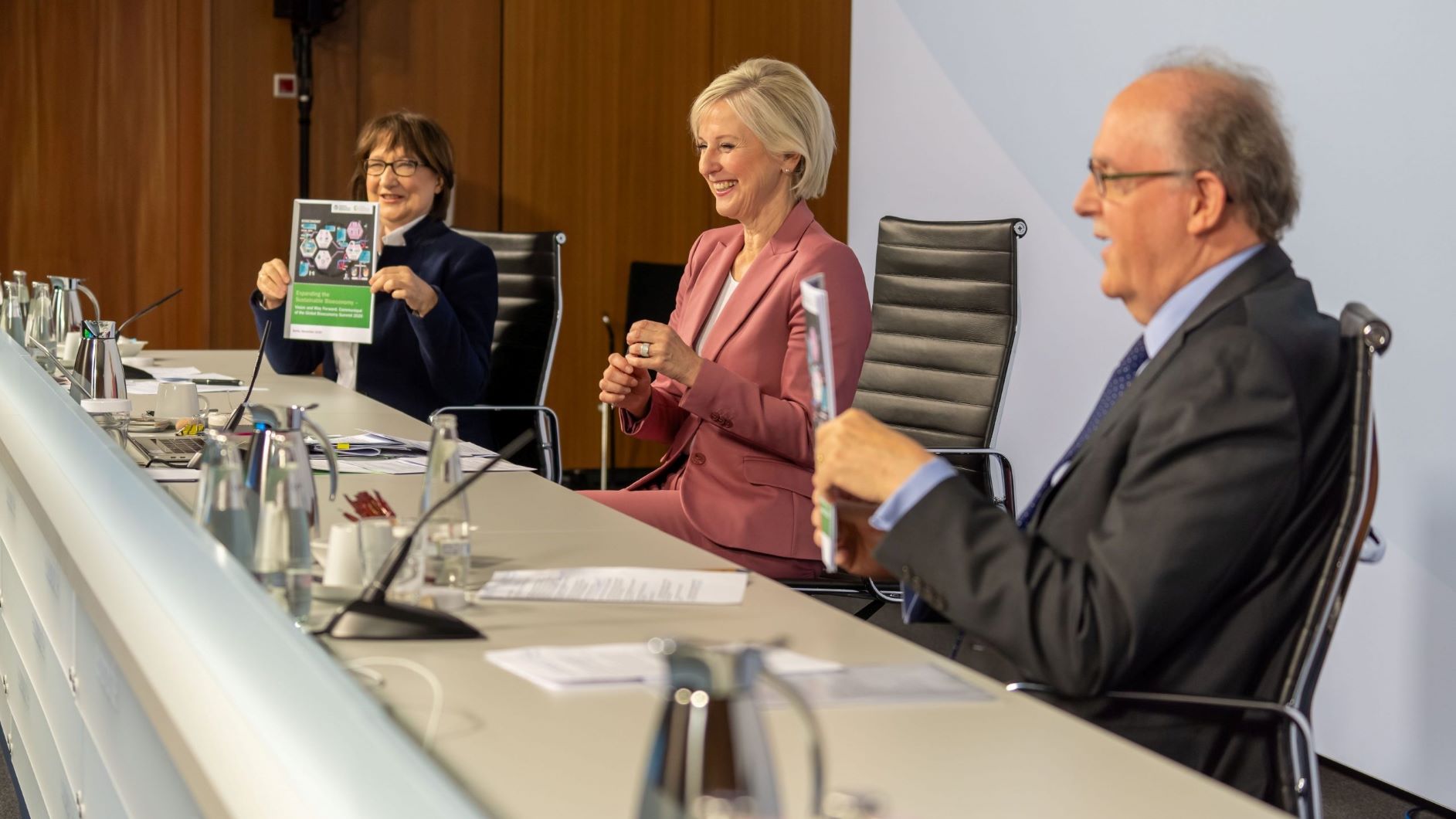
Derk Loorbach, director of the Research Institute for Transitions at Erasmus University in Rotterdam, focused on transformation processes for sustainable development. "There has been a remarkable transformation in society over the past five years, and there are increasing signals that the linear and extractive economy, with its many inequities, is destabilizing." We've known for 50 years that this system is unsustainable, now we're being forced out. "Dealing with this instability requires a change of mindset, a new understanding of innovation and what the dominant values are in the economy." This transition could lead to collapse and destruction but is also a great leap of the system toward a "nature-positive economy. We have every reason to believe this will work." Still, he cautioned, "A lot of the current recovery effort is focused on the conventional economy. But making the old economy less bad is not a transition." There is a need to embrace the period of transformative change.
The perspective of the next generation from the Bioeconomy Youth Champions meeting was presented by Tokelo Shai and Johann Liebeton. Shai reported on specific bioeconomy challenges and opportunities that the young players had identified, what actions they would require, and who would need to implement them. Topics included agriculture, education, energy and health. "What we can do is disseminate information and promote the issue." The much-demanded international and interdisciplinary exchange is something the younger generation also wants to cultivate, she said. "Education is important here to make the opportunities in the bioeconomy available to all young people." Liebeton praised the fact that the summit communiqué envisions giving greater consideration to women and young people in the IACGB. "The Young Bioeconomy Champions are ambassadors of the bioeconomy for the younger generations."
Christine Lang and Joachim von Braun ultimately concluded with an initial assessment of the GBS 2020: "The bioeconomy has become part of social change, but we have not yet reached our goal," said Lang. Her colleague von Braun warned that the bioeconomy should not be a concept of the rich for the rich. What is needed is an economic system that values people and nature. "We need to come out of the COVID-19 crisis with a rebooted economic system that respects people and planetary health, or we'll be in even deeper trouble." The longer there is hesitation to take harsh action and get to the root of global problems, he said, the bigger the problems will become. "We need to be more ambitious!"




